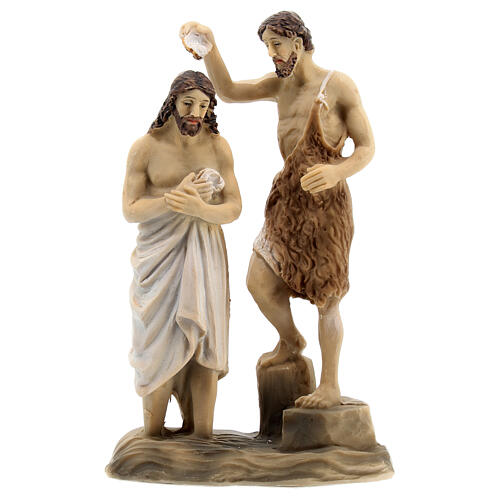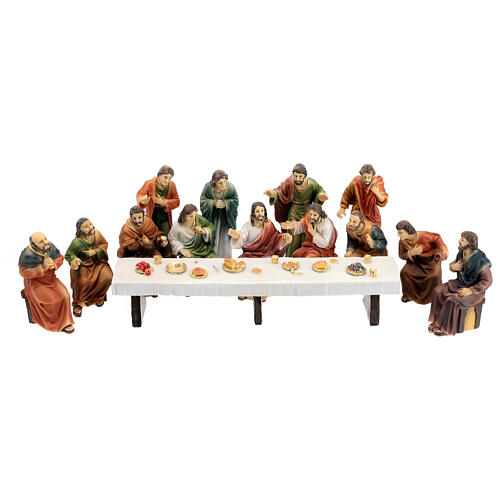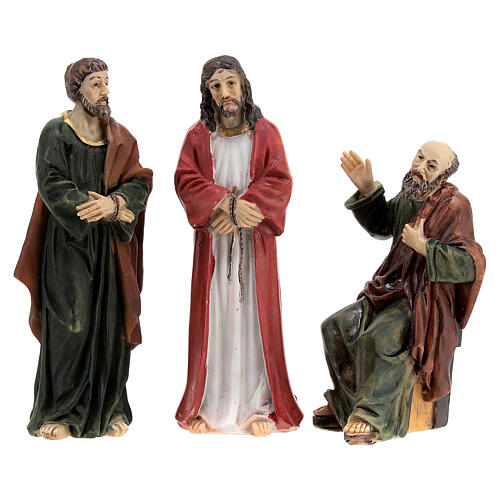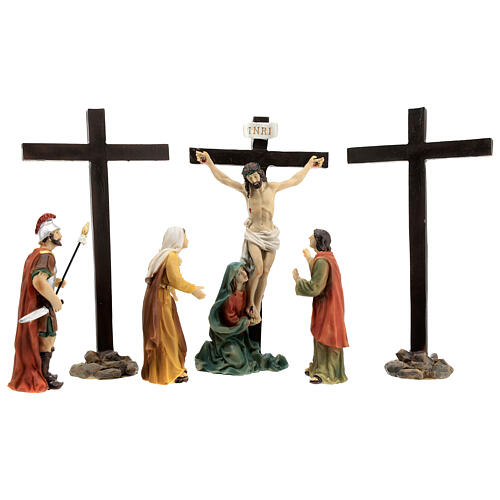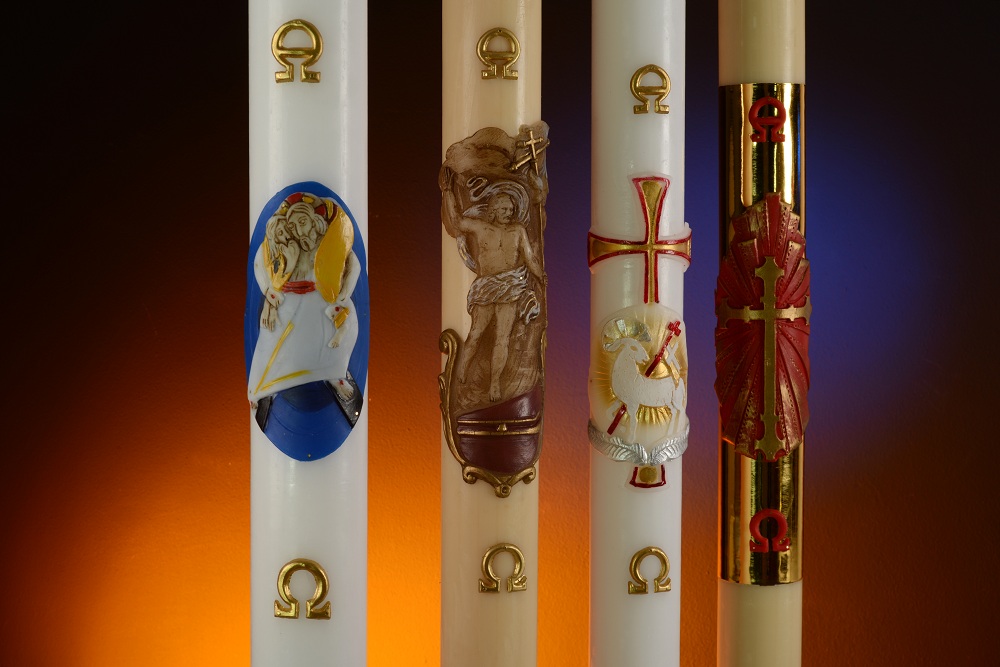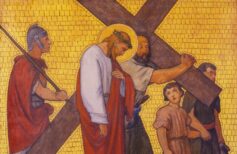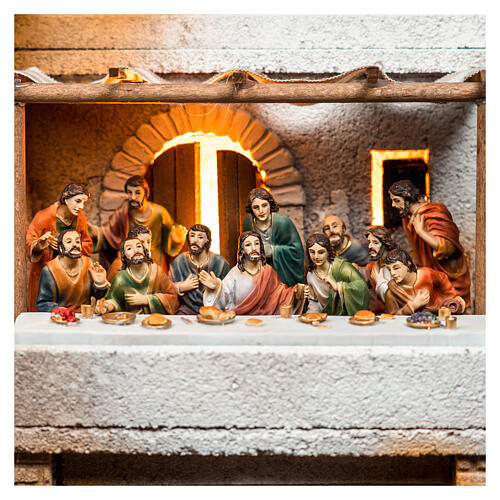From The Greatest Story Ever Told to The Passion of the Christ, including Jesus Christ Superstar. Films to watch at Easter to reflect on the life of Jesus.
Contents
In today’s world, where technology and media dominate many aspects of our daily lives, it’s inevitable that even profound themes, such as religion and the stories of events and figures associated with it, are conveyed through new communication methods. However, when it comes to films about Jesus, we must go far back to find the first attempts by directors and producers to narrate the human story of the Saviour. One of the earliest films in this regard is Christus (Italian title Cristo), directed by Giulio Antamoro in 1916. Using the expressive style typical of silent cinema, it portrays the life of Christ through a series of tableaux vivants reminiscent of great masterpieces of Renaissance sacred art.

The story of Jesus: the most important events of His life
The story that changed the fate of the humanity, between the Gospel story, historical reality and devotional legend the human story.
Closer to our time, there are many films about Jesus’ life to consider for Easter viewing. Cinema has often approached the figure of Christ in a dual manner. On one hand, especially between the 1920s and 1960s, major American productions tended to present a somewhat stereotypical depiction, emphasising His solemnity and divine mystery. In most films where Jesus appeared, He was often not shown directly (for instance, in Ben-Hur, where His face is never visible). This portrayal was hieratic, entirely devoid of human frailty or doubts, which are hinted at in the Gospels.
Later, filmmakers began to challenge this sanitised and embellished view, as well as their own beliefs, producing original films that often sparked heated discussions, controversies, and even violent protests. This was the case with Martin Scorsese’s The Last Temptation of Christ, a film accused of blasphemy, which shocked the Catholic world and led to attacks on cinemas where it was screened.
Even The Gospel According to St. Matthew, directed by Pier Paolo Pasolini in 1964, though faithfully recounting the life of Jesus as described in the Gospel of Matthew, was considered overly anti-dogmatic and sparked intense debate.
Other directors have chosen to adapt Jesus’ story to their own time and cultural changes, such as Norman Jewison with Jesus Christ Superstar (1973), inspired by the musical by Andrew Lloyd Webber and Tim Rice, heavily influenced by the hippie movement.
Still others, like the British comedy troupe Monty Python, opted for parodies that generated considerable controversy, such as Life of Brian, directed by Terry Jones in 1979. This film humorously depicts the misfortunes of Brian, an unlucky character in Roman-occupied Judea whose story inadvertently intersects with that of Jesus.
Listing all films about Jesus would be impossible, so we have selected a few noteworthy films to watch at Easter, offering a unique perspective on the mystery of Easter.

The Passion of the Christ
We have already discussed The Passion of the Christ (2004), a blockbuster written and directed by Mel Gibson, which portrays the final 12 hours of Jesus’ life. This intense, unflinchingly brutal film graphically depicts the suffering and violence endured by Jesus (played by James Caviezel) from His arrest to His crucifixion. Its stark violence, deemed excessive by many, drew criticism, along with accusations of antisemitism. Gibson drew inspiration from the Gospels and the visions of Blessed Anne Catherine Emmerich, a German mystic whose work, The Dolorous Passion of Our Lord Jesus Christ, describes the Passion of Christ in chillingly vivid and realistic detail. The film was shot in Latin, Hebrew, and Aramaic, with subtitles, making the viewing experience all the more immersive and unsettling.
The Last Temptation of Christ
Martin Scorsese’s The Last Temptation of Christ (1988), mentioned earlier, was deeply influenced by his personal spiritual and human journey. Based on the novel The Last Temptation (O teleftéos pirasmós) by Greek writer Nikos Kazantzakis, it initially recounts Jesus’ final days, focusing on His doubts and human frailty in the face of the immense mission God has entrusted to Him. The narrative then takes an unexpected turn, presenting an alternate reality in which Jesus descends from the cross and starts a new life, marrying Mary Magdalene and living as a husband and father. This section of the film, revealed to be a devil-induced hallucination, provoked outrage and intense controversy.

Mary Magdalene wife of Jesus: let’s clarify
What is the truth about Mary Magdalene? Wife of Jesus or simple disciple? Let’s find out in this article.
Jesus Christ Superstar
Jesus Christ Superstar (1973), directed by Norman Jewison, is deeply rooted in the cultural and social ferment of the 1970s. Based on the acclaimed musical by Andrew Lloyd Webber and Tim Rice, it tells the story of a group of hippie actors staging the final week of Jesus’ life. They travel to a desert area, becoming so immersed in their roles that the boundary between actors and characters blurs. The central question, still relevant today, is how events might have unfolded if Jesus had come into a world dominated by mass media rather than 2000 years ago. Notable is the portrayal of Judas (Carl Anderson), depicted not as a traitor but as a tool of God and a complement to Jesus (Ted Neeley) on His path to the cross. Though the film sparked controversy at the time for its unconventional approach to religious themes, it is now recognised even by the National Commission for Film Evaluation of the Italian Episcopal Conference.

The events of the Passion of Jesus: from the Last Supper to His Crucifixion
From the Last Supper to the deposition in the tomb let’s see how the last days on Earth have been
King of Kings
Inspired by the Gospels, King of Kings (1961), directed by Nicholas Ray, was the first film to show Jesus’ face. Filmed in Spain, it narrates Jesus’ story from before His birth, beginning with the destruction of Jerusalem by Pompey, to the historical events of the era, including Roman rule and the cruelty of King Herod, culminating in the Crucifixion. A historical epic filmed with great sensitivity and depth, it weaves in the stories of many New Testament figures, such as John the Baptist. Jeffrey Hunter’s portrayal of Jesus is both poignant and poetic.

The face of Jesus: let’s reconstruct his true likeness
A question that has fascinated and divided scholars and theologians for two thousand years
The Gospel According to St. Matthew
Written and directed by Pier Paolo Pasolini and featuring non-professional actors, The Gospel According to St. Matthew (1964) recounts Jesus’ life as described in the Gospel of Matthew, from the Annunciation to Mary, through the temptations in the desert, His preaching, arrest, and death. Matthew’s Gospel focuses on Jesus’ teaching of love, the “11th commandment,” and this theme resonates throughout the film. Jesus’ immense love, leading Him to sacrifice Himself for humanity, is central to the narrative. The film concludes with Christ’s Passion and Resurrection. Audience and critics were deeply divided in their responses.

Saint Matthew, apostle, evangelist and martyr
On 21 September, Saint Matthew is celebrated evangelist, apostle and martyr. Who was he and how did he become an apostle?
The Greatest Story Ever Told
The Greatest Story Ever Told (1965), directed by George Stevens, began as a radio series in 1947. It recounts the life of Jesus (Max von Sydow) as told in the canonical Gospels, from the Magi’s arrival in Bethlehem to the escape into Egypt, Jesus’ Baptism, His preaching, the Last Supper, His arrest, trial, Passion, and death. With a massive budget, the film is perhaps the most spectacular cinematic retelling of Jesus’ life, filmed with the spiritual reverence and historical accuracy the subject demands.




